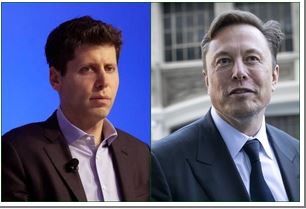
In the intricate dance of politics and personal affairs, revelations often emerge that shake the very foundations of public trust. Former British Prime Minister Boris Johnson has stirred the pot with sensational allegations against Israeli Prime Minister Benjamin Netanyahu, claiming that during a meeting in 2017, Netanyahu used his private bathroom, which was later discovered to contain listening devices. This eyebrow-raising incident, recounted in Johnson’s forthcoming memoir *Unleashed*, raises questions about the lengths to which political figures may go to gather intelligence.
Johnson’s account details how, after Netanyahu’s visit to the British Foreign Office, his security team found an audio device hidden in the bathroom during a routine sweep. “I don’t know whether it happened by accident or on purpose,” Johnson remarked, highlighting the bizarre nature of the situation. The implications of such espionage are profound, especially considering similar accusations have been levied against Israel regarding surveillance activities near the White House. This revelation adds another layer of intrigue to an already complex geopolitical landscape.
As tensions escalate in West Asia, particularly following Hamas’s attacks on Israel last year, the stakes have never been higher. Israel’s advanced technology and intelligence capabilities are under scrutiny as they navigate threats from various groups. The chilling reality is that surveillance and counter-surveillance tactics are becoming increasingly sophisticated, with Hezbollah reportedly targeting key figures through tight monitoring. The ongoing conflict raises concerns about how far nations will go to protect their interests and gather information.
With Johnson’s memoir set to be released soon, the fallout from these allegations is likely to reverberate across political circles. As public interest grows, many are left wondering about the broader implications of such espionage claims and what they reveal about international relations today. In an era where privacy seems increasingly elusive, this incident serves as a stark reminder of the shadows lurking behind political machinations and the delicate balance between security and personal privacy.


























